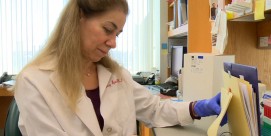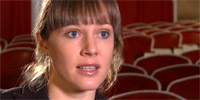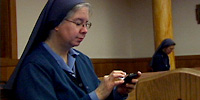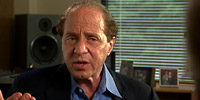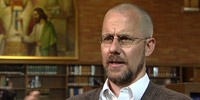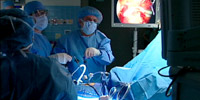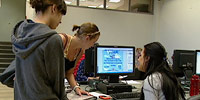Topic: Science and Technology
“Our main goal is not to cause any harm or additional stress to families,” says Nancy Spinner, head of genomic diagnostics at Children’s Hospital of Philadelphia. More
In 2011, a researcher for Twitter discovered that bible verses, inspirational messages, and other tweets from religious leaders were incredibly popular among Twitter users. That discovery led the company to begin actively working with members of religious communities. Claire Diaz-Ortiz, … More
“We live by the work of our hands and also have some left for helping out those who are maybe less fortunate,” says the abbess of St. Mary’s, Ireland’s only Cistercian monastery for women. More
In the brave new world of social media, says communication professor Stephen O’Leary, church authorities from pastors to the heads of denominations “no longer have the kind of control they once did.” More
“When we’re using missiles that kill but place no risk,” suggests Yale law professor Stephen Carter, “that means it’s easier to fight, which means it’s more likely we’ll fight.” More
“Computers will match us in emotional intelligence, which includes our whole moral system,” says inventor and computer scientist Ray Kurzweil. More
Biological and technological evolution “is a spiritual process,” says this leading futurist. “Entities become more godlike, never reaching that ideal but moving in that direction exponentially.” More
Purposefulness and self-sacrifice in human life “can never be reduced to a machine,” according to this bioethicist. More
Donating organs and tissues “is considered an altruistic, charitable act and all the major religions look favorably upon that behavior,” says ethicist Robert Veatch. More

